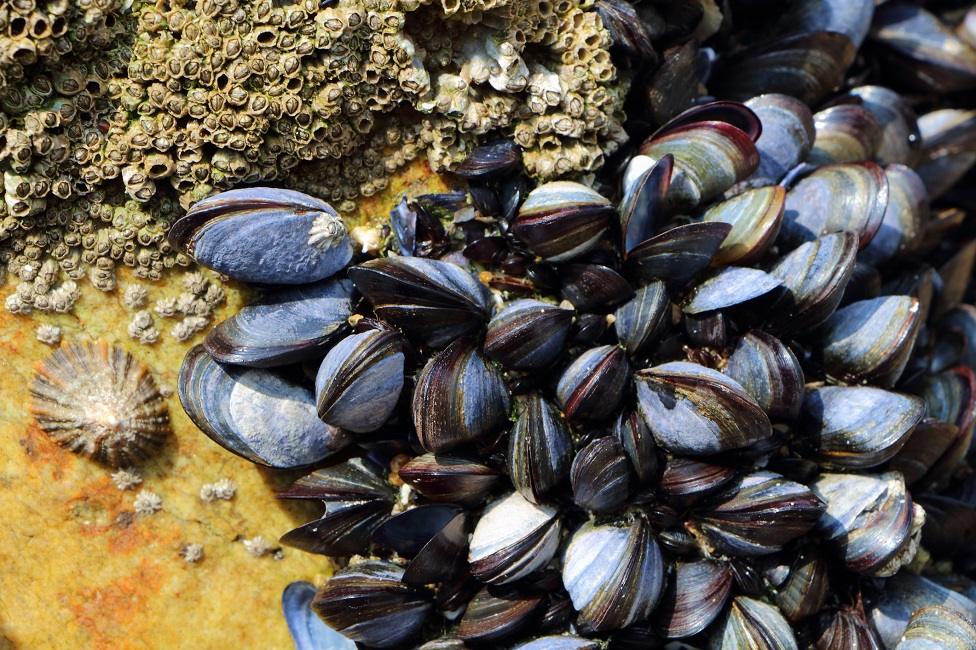Mussels stressed by underwater noise from ships
- Published

Mussels are stressed by underwater noise from ships, research suggests.
Scientists said that while this was not "immediately dangerous" for the creatures, it could affect growth and may even help explain a decline in mussel banks in some areas of the UK.
Previous studies have looked at how noise affects larger marine creatures, such as whales and dolphins.
Now marine scientists from Edinburgh's Napier and Heriot Watt universities are looking at the impact on mussels.
Despite the molluscs not having ears, the researchers found they can detect changing sound levels in their environment.
The scientists collected mussels from the shore at Musselburgh, East Lothian, and tested their response to noise in a laboratory at the St Abbs Marine Station near Eyemouth - a charity dedicated to marine science, conservation and education.
Behavioural changes
Karen Diele, of Edinburgh Napier University, said: "The blue mussel is an extremely important invertebrate in the UK, it is commercially valuable and it plays an essential ecological role as a reef builder and a filter-feeder that keeps the water clean.
"We recorded and played the sound of a ship's motor to a sample of blue mussels in a controlled setting, and measured biochemical and behavioural changes in the mussels.
"For the first time in a marine species, we detected noise-induced changes in DNA integrity, indicating an underlying source of stress."
Matt Wale, also from Edinburgh Napier University, said the mussels that had been exposed to noise consumed 12% less oxygen - leading to increased energy use and potentially slower growth.
He added: "The filtration rate, or how much algae they consume, decreased by over 80% and there was a 60% increase in valve gape, which means the mussels are spending more time vulnerable to predators."
High noise areas
Another member of the team, Mark Hartl from Heriot-Watt University, said: "Given the wide distribution of mussels in areas where they may be exposed to noise, the impact of noise does not appear to be fatal or immediately dangerous for mussels.
"However, this doesn't mean it isn't having a long-term effect on mussel populations in high noise areas, it could be affecting their growth, reproductivity and may help explain the decline of mussel banks in some areas of the UK.
"It's important that we understand how noise is stressing mussels in environmental risk assessments so that we can ensure environmental policy and regulation is effective."
The research was supported with funding from the Marine Alliance for Science and Technology for Scotland.